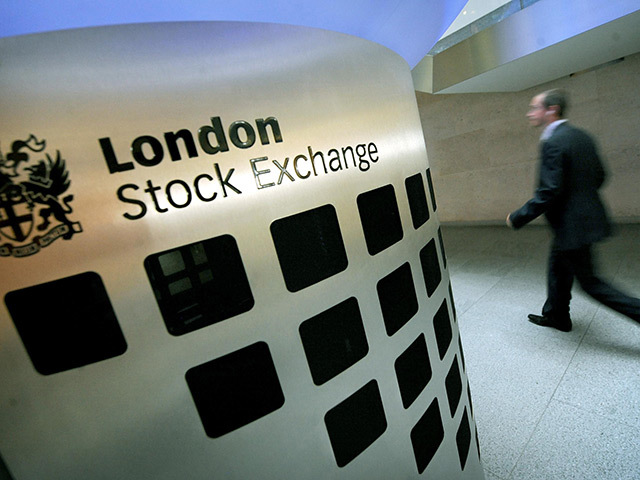
London’s top-flight index pushed to an all-time high after sterling collapsed following hints from Prime Minister Theresa May that Britain may opt for a so-called “hard Brexit”.
The FTSE 100 Index jumped to a mid-session record of 7,239.26, before paring gains to rise 19.20 points to 7,229.25, as the market continued to benefit from the pound’s slump.
It put the London market on course to deliver a record closing high for the eighth day running.
Sterling plunged to a two-month low against the US dollar – dropping 1.2% to 1.214 – in response to an interview with Mrs May on Sunday, in which she stated that importance would be given to gaining full control over immigration during divorce negotiations with the European Union (EU).
The pound was also down 0.9% versus the euro at 1.154.
Connor Campbell, financial analyst at Spreadex, said the markets were reading Mrs May’s comments as a move towards leaving the European single market in favour of World Trade Organisation rules (WTO).
“The main driver of the index’s growth seemed to be the latest plunge from the pound, which dropped by 0.8% against both the dollar and the euro following Theresa May’s Sky News interview at
the weekend.
“The Prime Minister’s comments were read as falling decidedly on the ’hard’ end of the Brexit spectrum, with ’control of (the UK’s) borders’ likely to be prioritised over continued access to the single market.
“This left sterling at a rough two-month low against both the dollar and the euro, something that in turn spurred the FTSE on by another 30 points.”
The pound’s fall since the Brexit vote has proved beneficial for multinational companies listed on the index, as many tend to benefit from earnings in currencies – such as the US dollar – which are performing more strongly than sterling.
The pound has dropped around 18% against the US dollar and 10% versus the euro since the June 23 vote, as traders expect the British economy to be significantly weaker once it quits the EU.
Across Europe, Germany’s Dax was down 0.5% and the Cac 40 in France slipped 0.4%.
On the oil markets, the price of Brent crude slid 1.7% – or 97 cents – to 56.13 US dollars a barrel, as traders became concerned about the Opec cartel’s ability to drive through production cuts.
In UK stocks, London-listed miner Glencore was sitting at the top of the biggest risers after positive comments from Barclays on the outlook for the mining industry.
Shares were up more than 2%, or 6.7p to 295.2p, after the bank said that China’s ongoing infrastructure spending splurge, coupled with potential fiscal stimulus from Western countries, made the sector’s valuation look reasonable.
Away from the top tier, betting giant William Hill was nursing hefty losses after warning that profits would suffer a £20 million hit following a string of “customer-friendly” results in December.
As a result, the high street bookmaker said full-year operating profit for 2016 would come in at around £260 million, the bottom end of its £260 million-£280 million range.
The group said unfavourable horseracing and football results affected its win margins after a December in which a number of favourites came out on top.
Shares were down more than 2%, or 7.1p to 290.6p, on the FTSE 250 index.